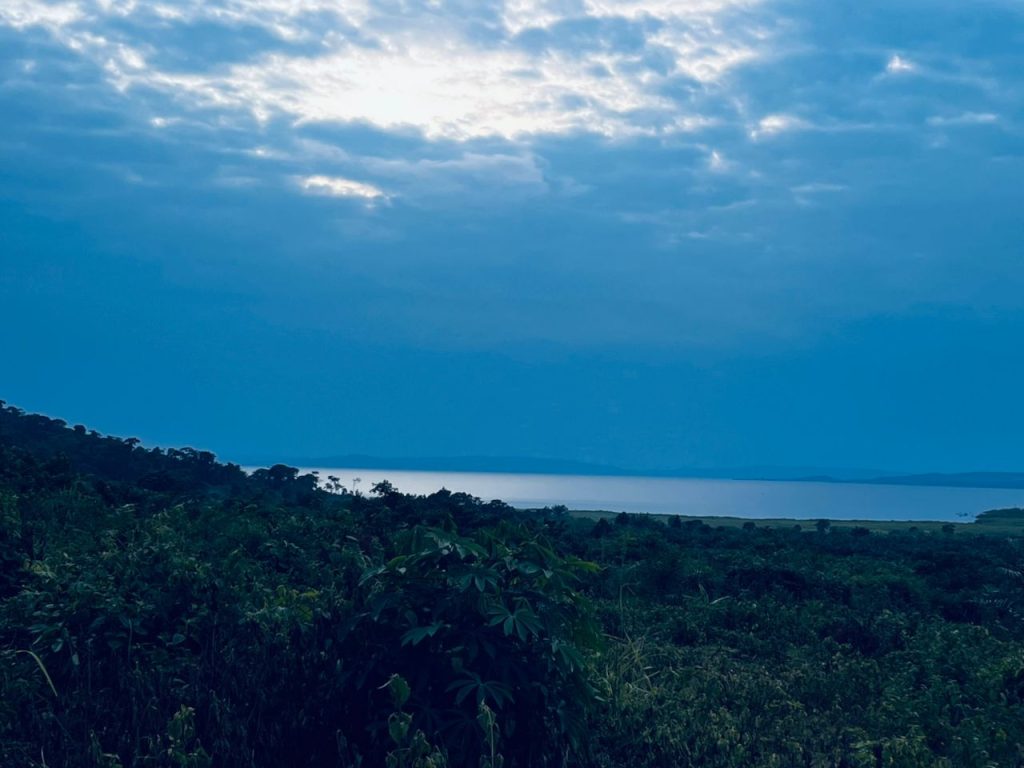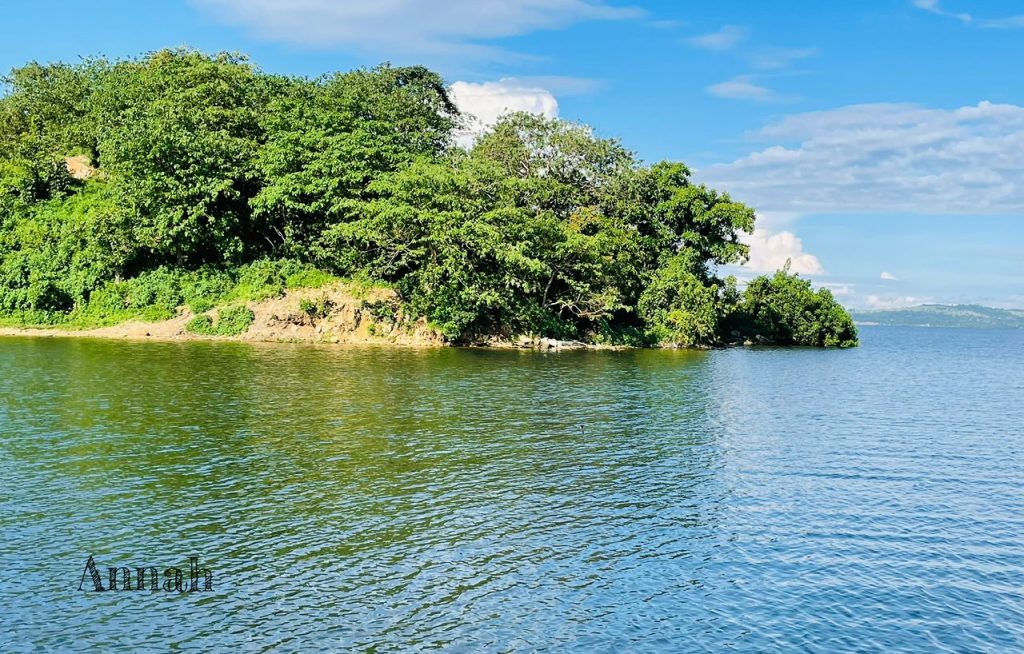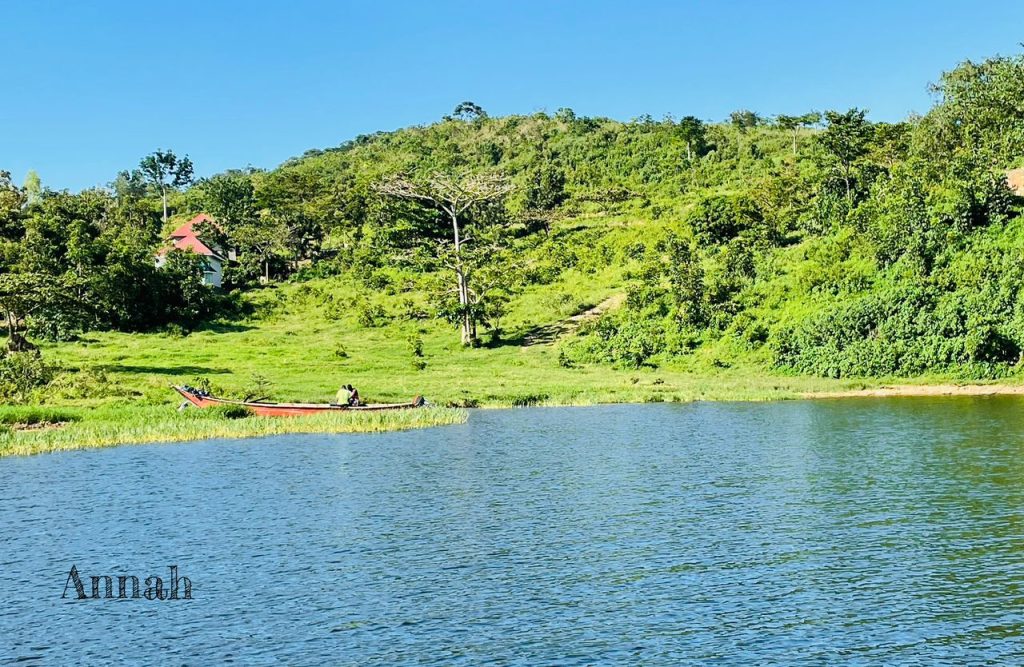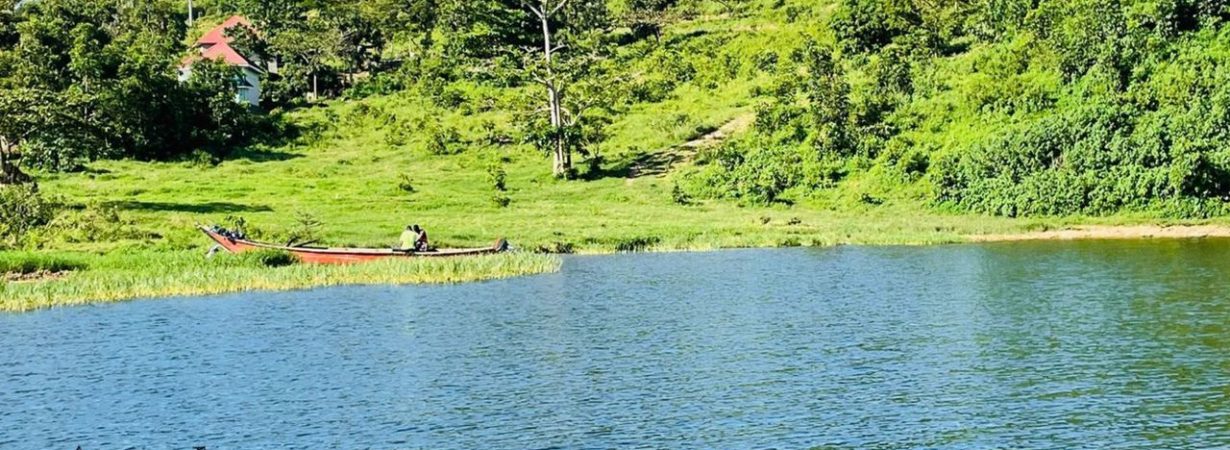Buvuma Island: A Quiet Gem on the Rise
By Annah Nafula
It was just a regular trip, or so I thought, until I found myself aboard a ferry at Kiyindi Landing Site in Buikwe, off Nkokojeru – Jinja Road.
Just 45 minutes across Lake Victoria, I was headed for Buvuma Island, a remote yet quietly awakening piece of paradise on Uganda’s map, not for the usual reasons, but because of something new: palm oil.
Buvuma has always been remote. The kind of place where silence reigns and time seems to drift just a bit slower.

What struck me most was not just the palm plantations sprouting across the land, but how this place, once quiet and often forgotten, is now being visited by banks, NGOs, and new waves of civil interest.
Land that was once sold cheaply is now being technically hired out for the project. Roads are improving, though mostly murram, but access is expanding.
The island’s only one kilometre stretch of tarmac lies in Kitamiiro, the most developed town here.
When you dock at Kilongo, the main entry point via ferry, you are welcomed by the quiet bustle of small businesses trying to make ends meet.
There is no formal town vibe, but there is a determination that makes the place feel alive. For most big or unique shopping needs, locals travel to Mukono or Jinja, the nearest mainland towns.
Transportation here is almost entirely reliant on motorcycles. Cars are rare. That, along with the minimal human traffic, gives Buvuma Island its signature: a breath of fresh air, an overwhelming sense of peace, and silence that invites reflection.
If you are someone who enjoys space, solitude, and nature, you will fall in love fast.
The ferry to Buvuma Island is free, a government service, and only runs at specific times: 4 return trips on weekdays, 3 on weekends.
Islanders have mastered the art of punctuality because missing a ferry means hours of delay or digging deep into your pocket for a boat.
You are required to travel with an Identification Document to register on the manifest, and the Uganda Police manages tight security onboard.
The ferry carries a limited number of vehicles that are selected on a first-come, first-served basis.

Accommodation on this island is modest at best. There are about three small hotels, often quiet, sometimes without meals.
If you are lucky (and patient), the owners might figure something out for you.
This place gives more survival vibes than luxury, but that is part of its rugged charm.
About the fish, do not come expecting a fresh catch on demand. Most of Buvuma’s fish is quickly sold off to better-paying markets in town.
If you want a good fish meal, you must place an order early in the morning or have connections.
Your gamba n’ogu might not be about a broken traffic rule, but a big desire to have a decent fish meal. You may need connections to one of the big fishermen around.

Unfortunately, like many landing sites, Buvuma still struggles with sanitation. Landing sites, including Kiyindi, have unusable toilets.
The oxymoron: being surrounded by a lake yet lacking water in restrooms.
I found that even when toilets existed, they were poorly maintained and unhygienic.
This prompts people to either wait and use the ferry washrooms or ease themselves around or behind the washrooms.
Buvuma holds tightly to its cultural beliefs. On my first visit, a resident cautioned me not to pick up anything from the ground, even money, she added.
She explained that it might be laced with witchcraft.
She further explained that if money were truly dropped, I would still find it where I left it, because residents are not accustomed to picking what does not belong to them.
Life in Buvuma is centered around fishing. That means casual labourers are few and expensive; they simply do not need the work.
If one does not do their job, they go fish and still earn. It is one of the few places I have been where bargaining holds little weight.
The island’s main health centre is currently pushing for hospital status. But do not fall ill on a weekend because most medics head to the mainland to visit family and return on the Monday ferry. Medical care is available, but only if you time it right.

Despite its small size, Buvuma is proudly making its mark in sports. Their football team, Buvuma Football Club, is currently second in their Masaza Cup group, something that has brought pride and unity to the community.
What is most surprising is that Uganda Tourism Board has not mapped out this gem yet. But if I were to pitch Buvuma as a destination, I would sell it to the quiet souls, introverts, solo travellers, writers, campers, herbal medicine researchers, and peace seekers.
The island is perfect for long nature walks, scenic boat rides, cycling through quiet villages, or simply sitting and watching the sunset vanish into the lake.
This is not a place for party-goers, fine dining seekers, or five-star hotel hunters. This is raw, untouched, and stunningly real.
Buvuma Island is not for everyone; it is for those who are not afraid of their inner thoughts. Those who do not thrive on other people’s energy, those who desire a one-on-one with nature, those that are not afraid of when darkness falls, because when it does, the lake mirrors into the darkness, the moon and the stars are brighter that side because there is no electricity.
It is a soulful escape waiting to be found. I am not an introvert, but I have grown to enjoy my own company; take me back anytime, any day.


